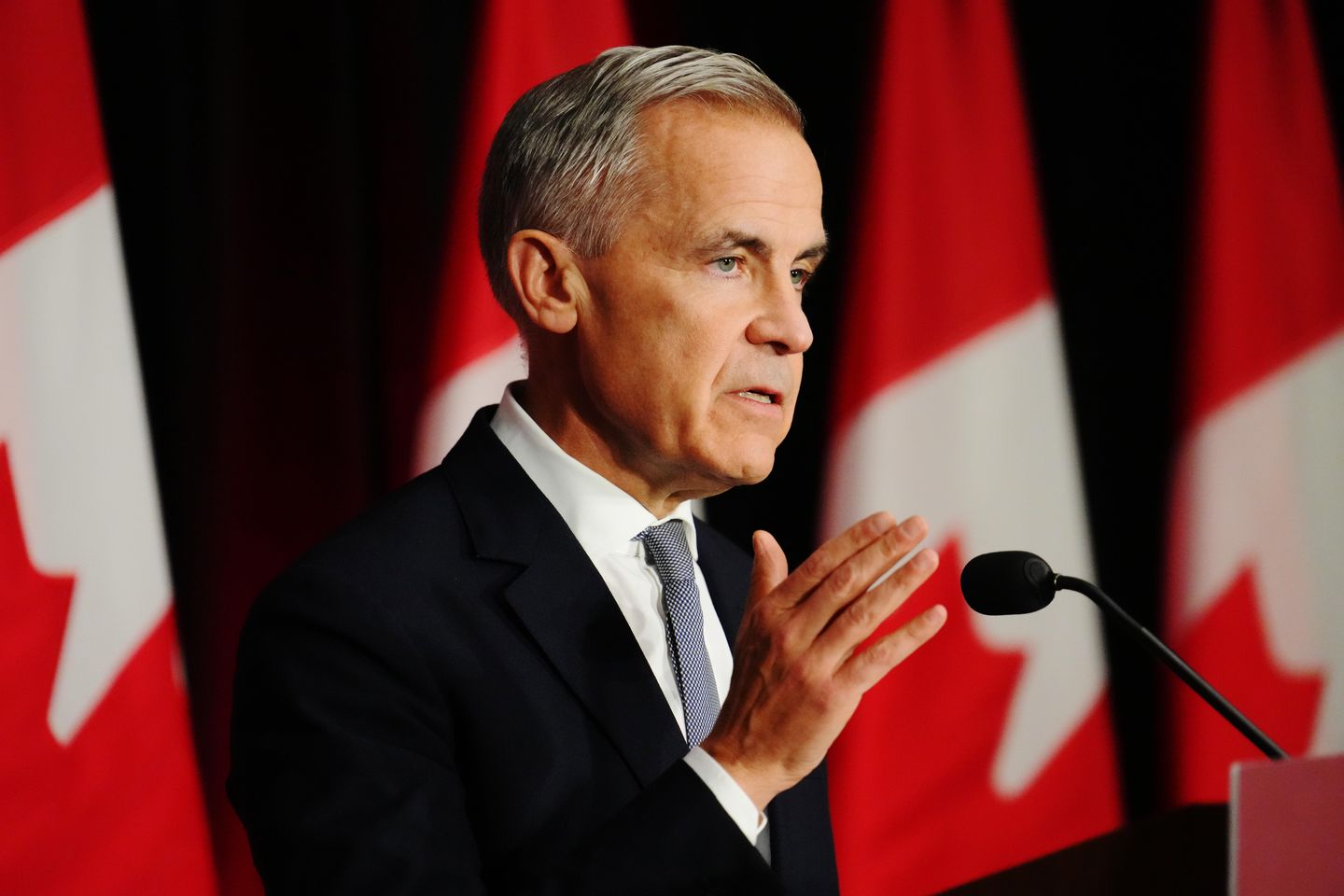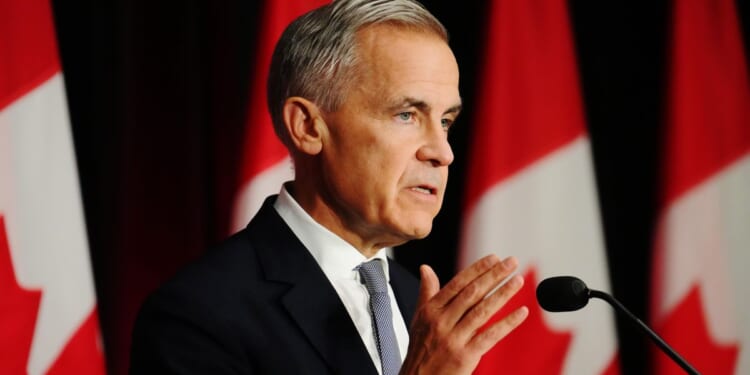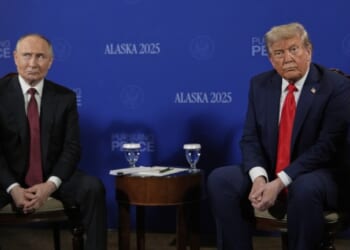
President Trump said Monday he does not plan to meet Canada’s leader “for a long time,” signaling that his anger over an anti-tariff ad hasn’t subsided.
Mr. Trump and Prime Minister Mark Carney will be attending a major Asian economic summit in South Korea. Yet the president’s comments suggest that trade talks between the North American neighbors will remain in limbo.
“I don’t want to meet with him. I’m not going to be meeting with him for a long time,” Mr. Trump said en route to Japan from Malaysia.
Mr. Trump is angry about the province of Ontario’s decision to run an ad featuring clips of a 1987 speech by President Ronald Reagan, a hero to U.S. conservatives.
In the speech, Reagan says tariffs can be useful in limited circumstances. But his overall message, which is highlighted in the ad, is that broad tariffs can lead to retaliation and economic turmoil.
Mr. Trump made tariffs a central plank of his second-term agenda, so he saw the ad as a thumb in his eye during trade talks with Canada.
SEE ALSO: Treasury Secretary Scott Bessent says U.S., China reach ‘substantial’ trade framework before summit
The Canadians had been trying to reduce 35% tariffs on its products, plus high levies on things like steel, aluminum, cars and car parts.
Instead, Mr. Trump announced over the weekend he would impose an extra 10% duty on Canadian goods because of the Reagan ad, though the implementation date is unclear.
“I don’t know when it’s going to kick in. We’ll see,” Mr. Trump said.
Ontario Premier Doug Ford said he sponsored the Reagan ad to push back on Mr. Trump’s tariffs with Reagan’s own words. The ad played during prominent baseball playoff games, including the first two World Series games featuring the Toronto Blue Jays.
Mr. Ford said he would pull the ad on Monday to allow space for trade talks.
Mr. Carney, speaking to reporters in Japan, said his side was prepared to resume talks with the U.S.
SEE ALSO: Trump mounts blitz to defend tariff plans ahead of ‘most important case ever’ at Supreme Court
“We stand ready to sit down with the United States, myself with the president, my colleagues with their colleagues, when the U.S. is ready to sit down,” Mr Carney said.
He said both sides had made “considerable progress” before the Reagan spat.
Mr. Carney did not speak with Mr. Trump during their time in Malaysia. The Canadian leader said he plans to meet Chinese President Xi Jinping in South Korea to discuss trade and other matters.
Mr. Trump will sit down with Mr. Xi on Thursday in a high-stakes bid to resolve thorny trade issues that pivot on China’s crackdown on rare earth elements and a U.S. threat to impose 100% tariffs in response.
Treasury Secretary Scott Bessent said both sides reached a “very substantial framework” in which China would withdraw its threat to impose a 100% tariff, while Beijing would shelve its plans to restrict rare earth exports. He said the agreement would benefit American farmers and bolster efforts to combat the fentanyl crisis.
Mr. Trump said Monday that nothing had been agreed to yet, “but we feel good.”
The president also said he made progress with Brazilian President Luiz Inácio Lula da Silva. Mr. Trump is imposing a 50% tariff on Brazilian goods, partly due to the country’s prosecution of ex-leader Jair Bolsonaro.
“They’d like to do a deal. We’ll see, right now they’re paying, I guess, [a] 50% tariff. But we had a great meeting,” Mr. Trump said.
Trump administration officials also said they are getting close to finalizing a trade deal with South Korea.
Under the terms, the U.S. would impose a 15% tariff on South Korean goods, instead of a higher levy, and South Korea would invest $350 billion in U.S. projects. However, Seoul wants financial safeguards before it spends money on U.S. projects.
“Just a lot of details to work out,” Mr. Bessent said en route to Japan. “It’s a very complicated deal and I think we’re very close.”
The deal could include parameters around visas for workers, after a recent U.S. immigration crackdown on South Korean workers at a Georgia plant stirred controversy.
“They’ve gotta bring people in with them for a period of time, and they’ll teach our people how to do it,” Mr. Trump said. “But even for a fairly long period of time, they’re gonna need expertise to be successful.”
U.S. officials over the weekend announced trade and minerals deals with the Southeast Asian nations of Malaysia, Thailand, Cambodia and Vietnam.











